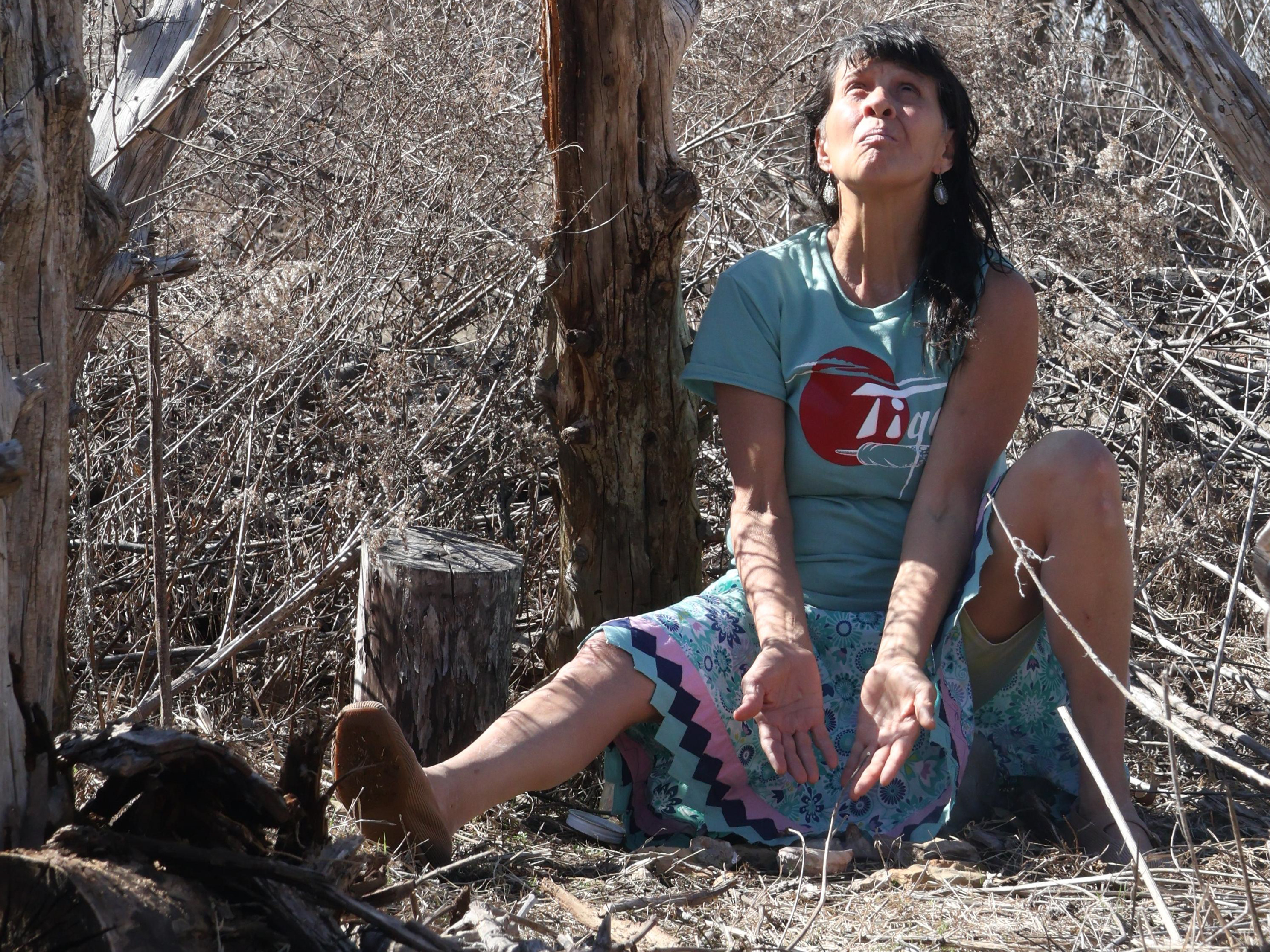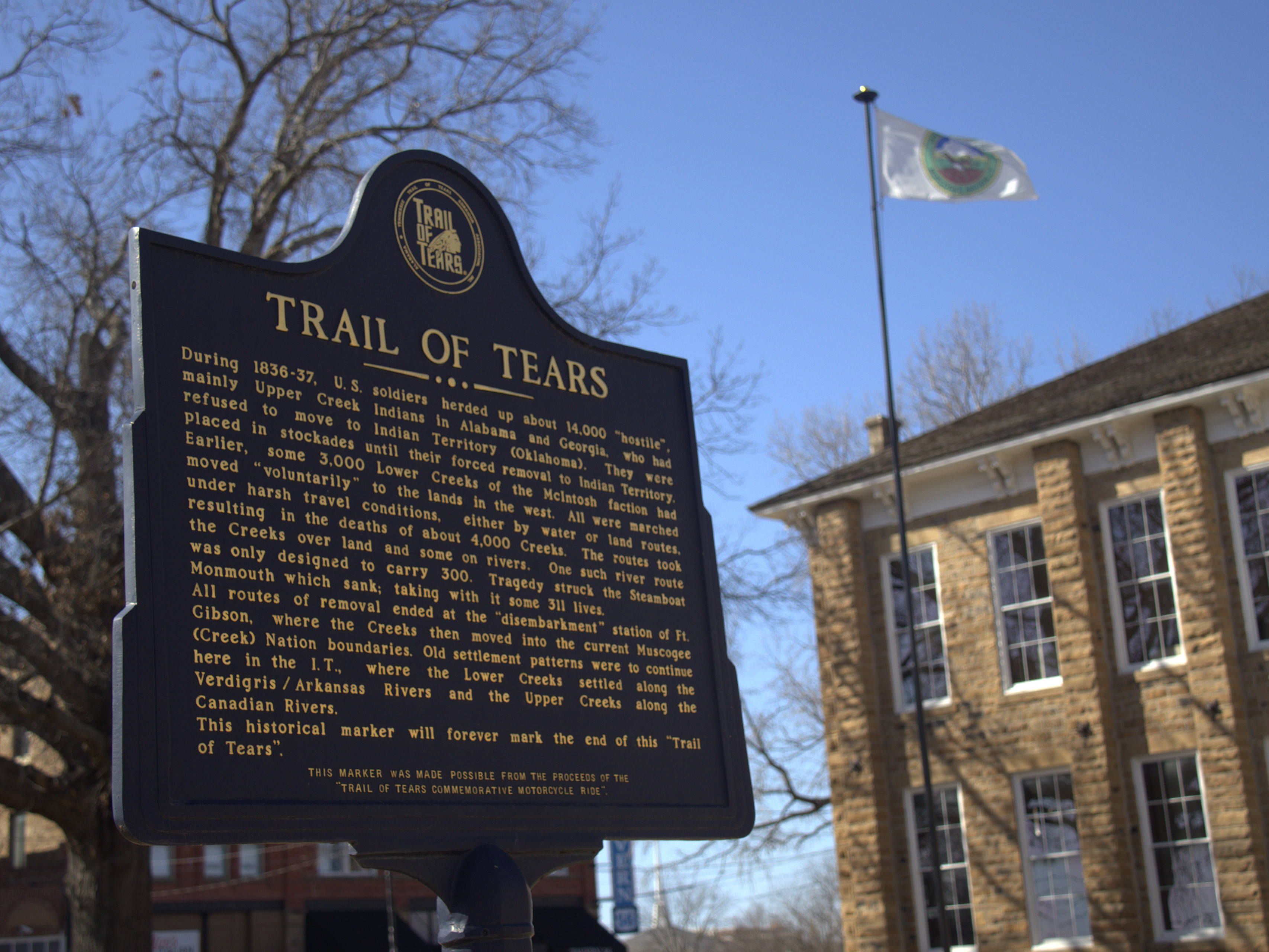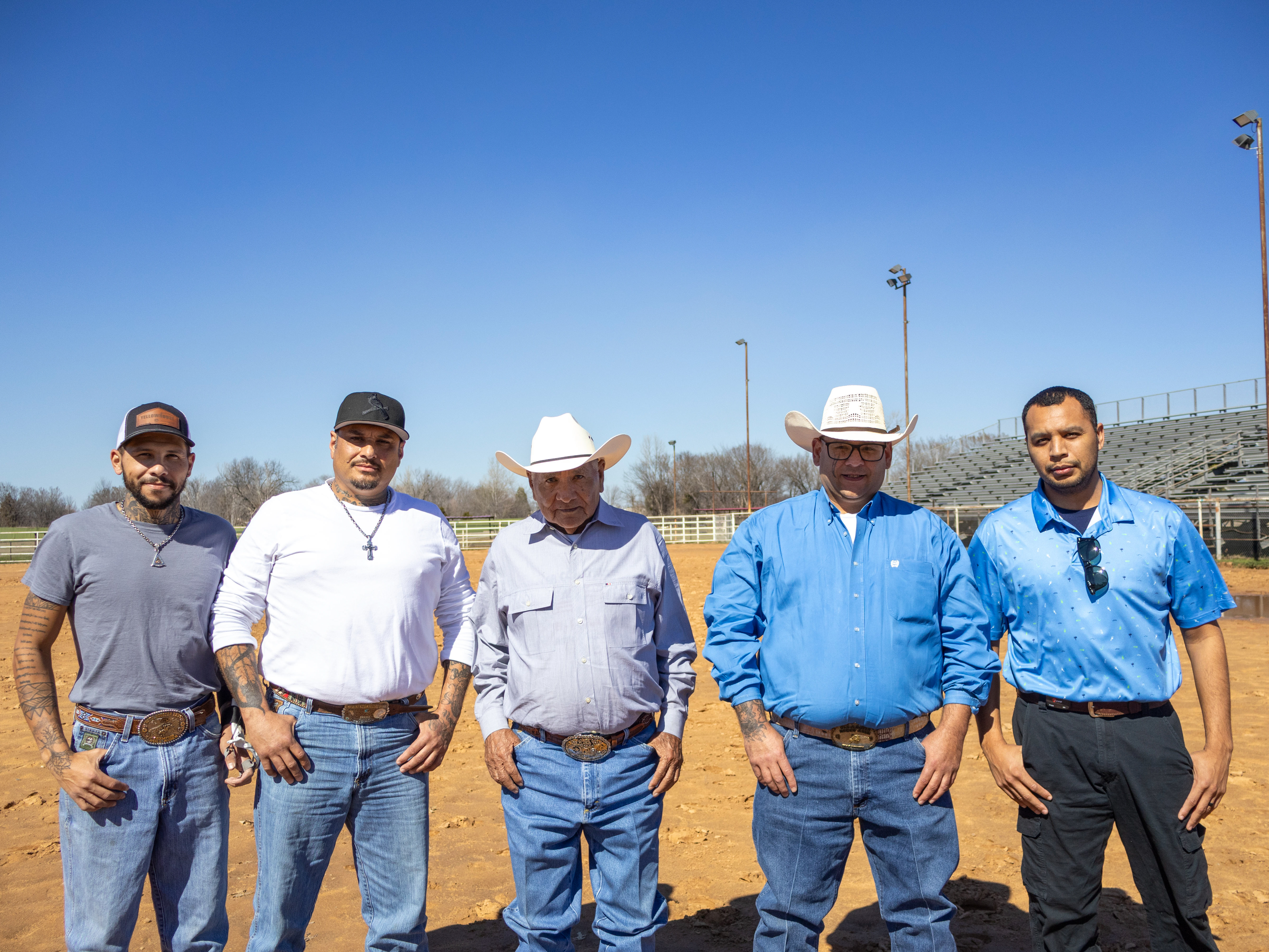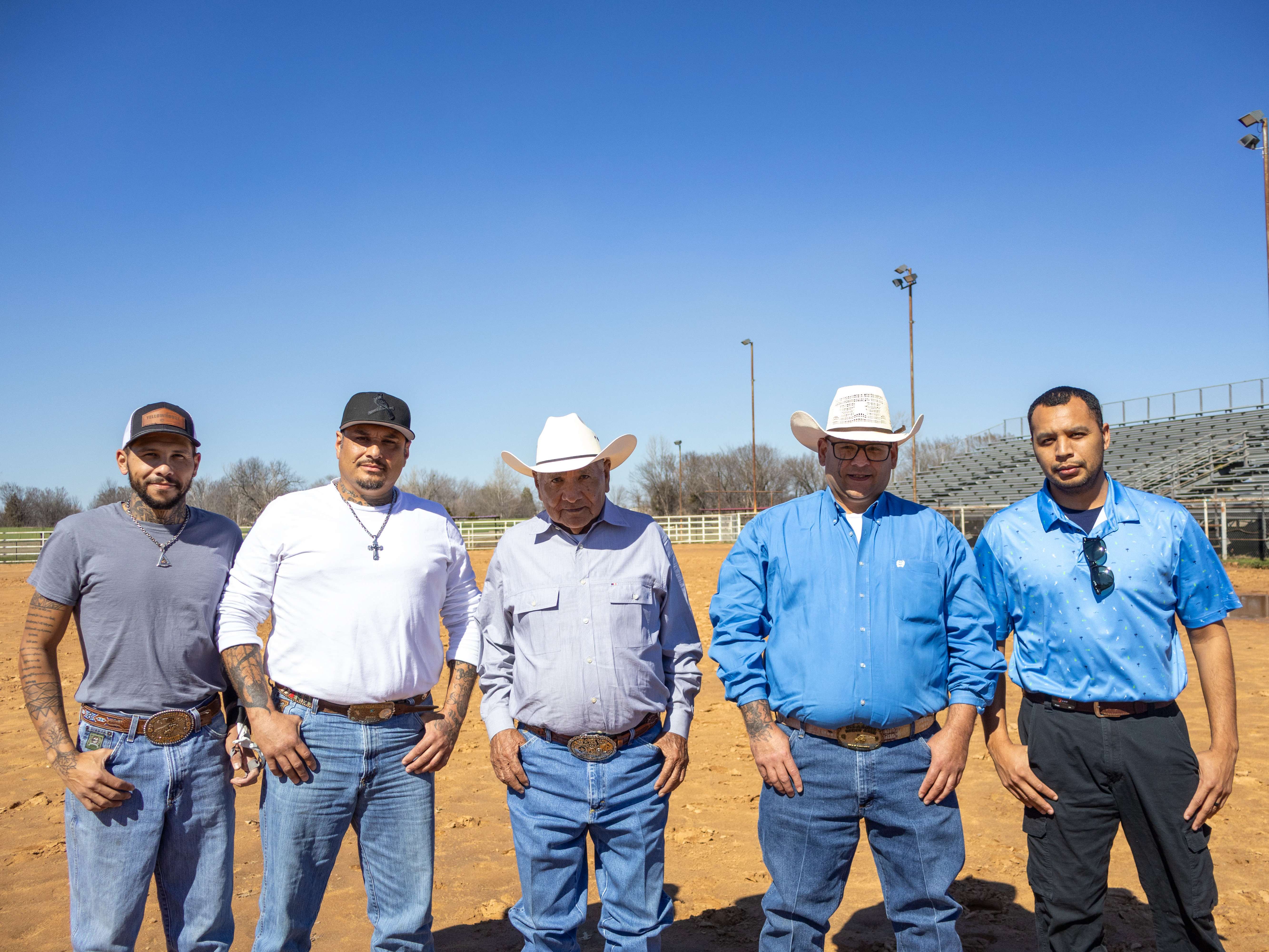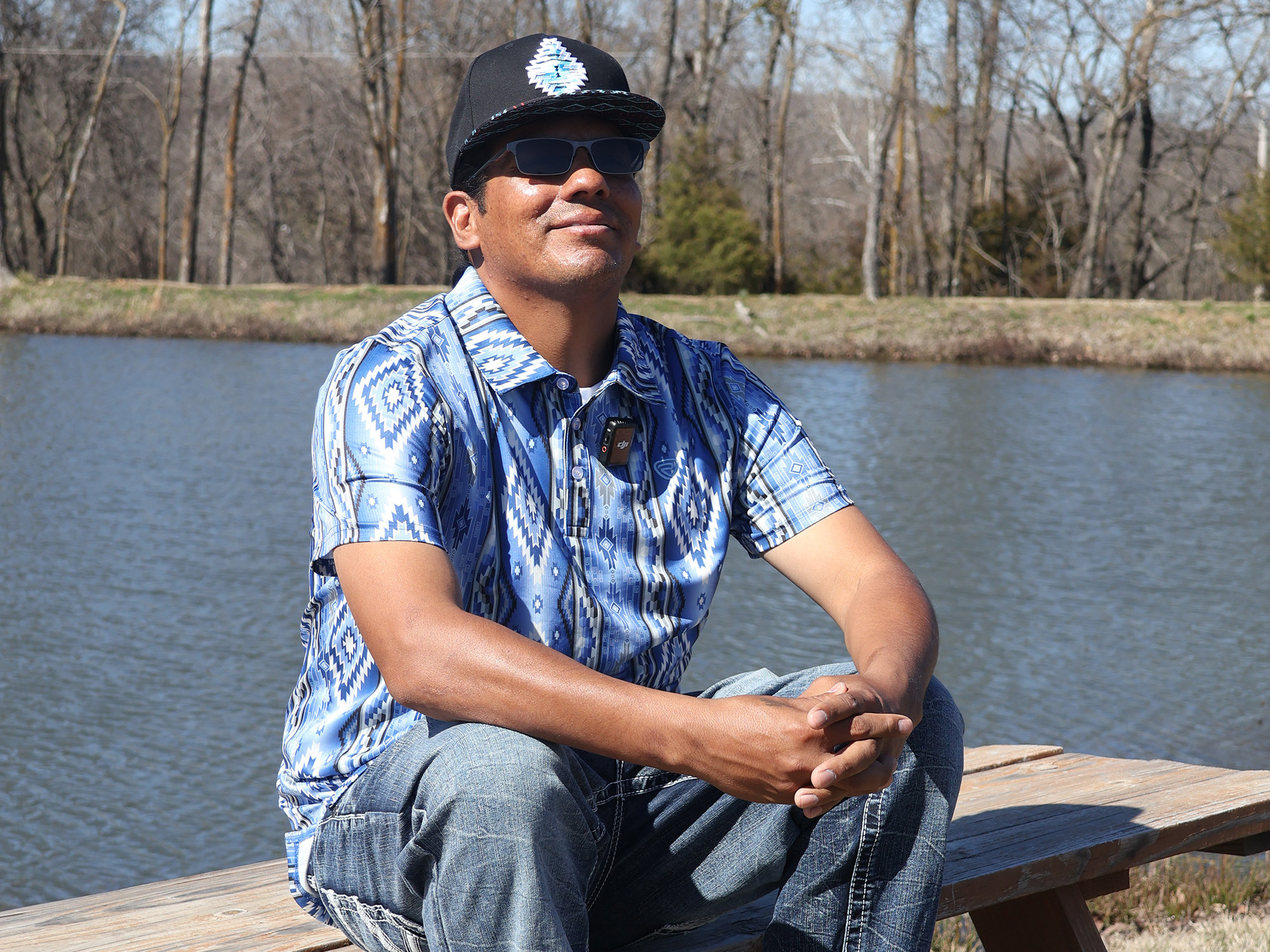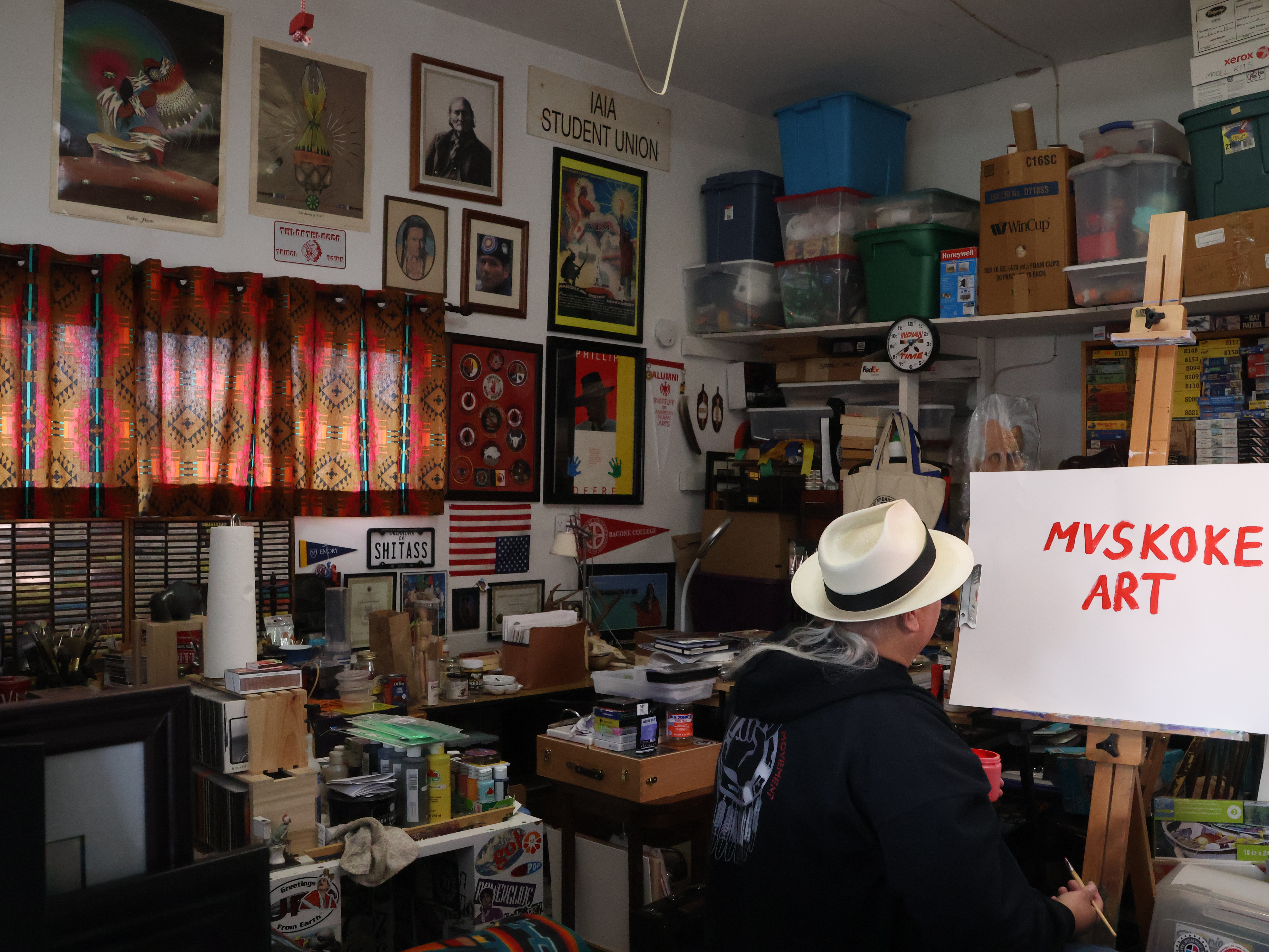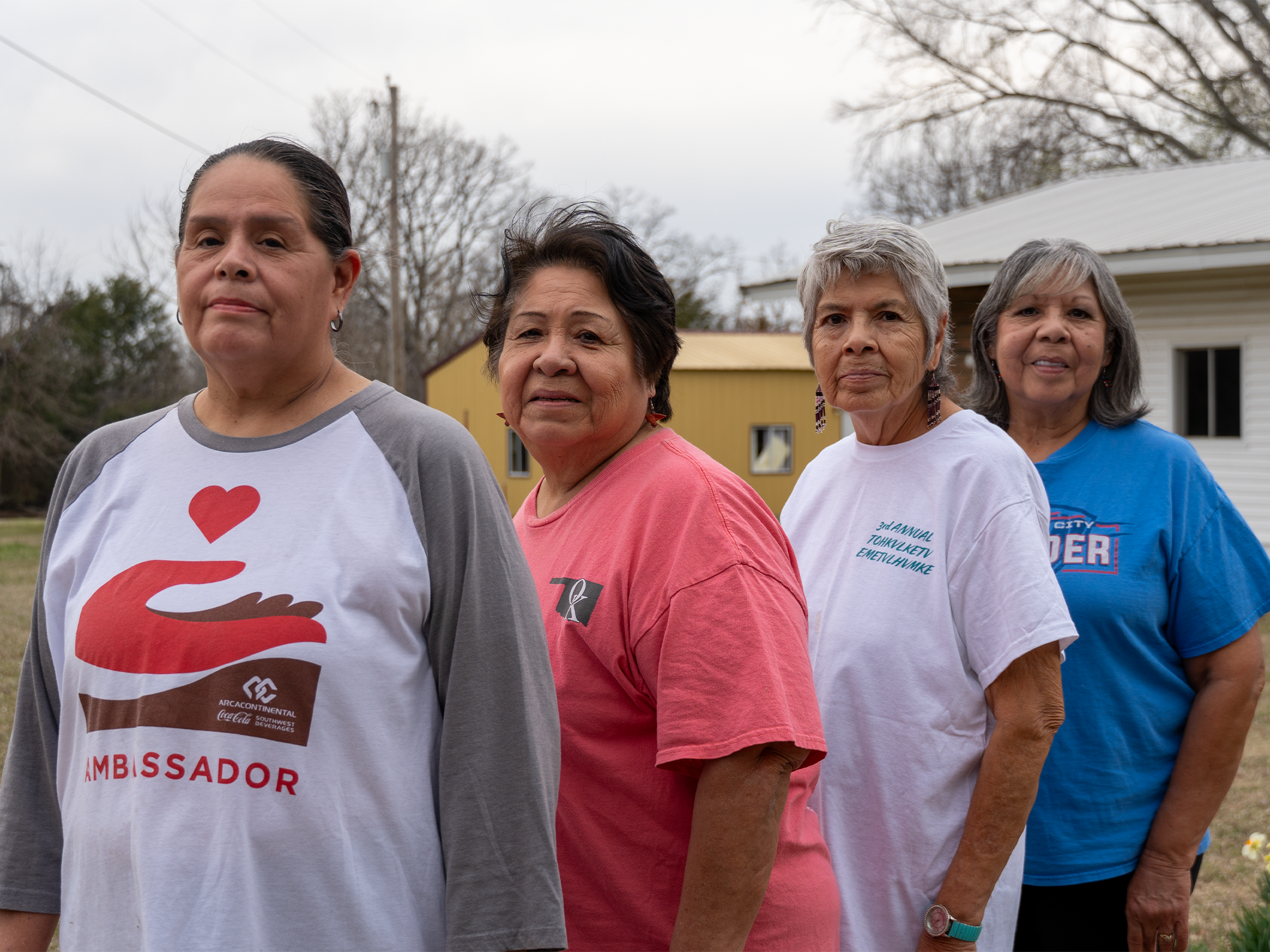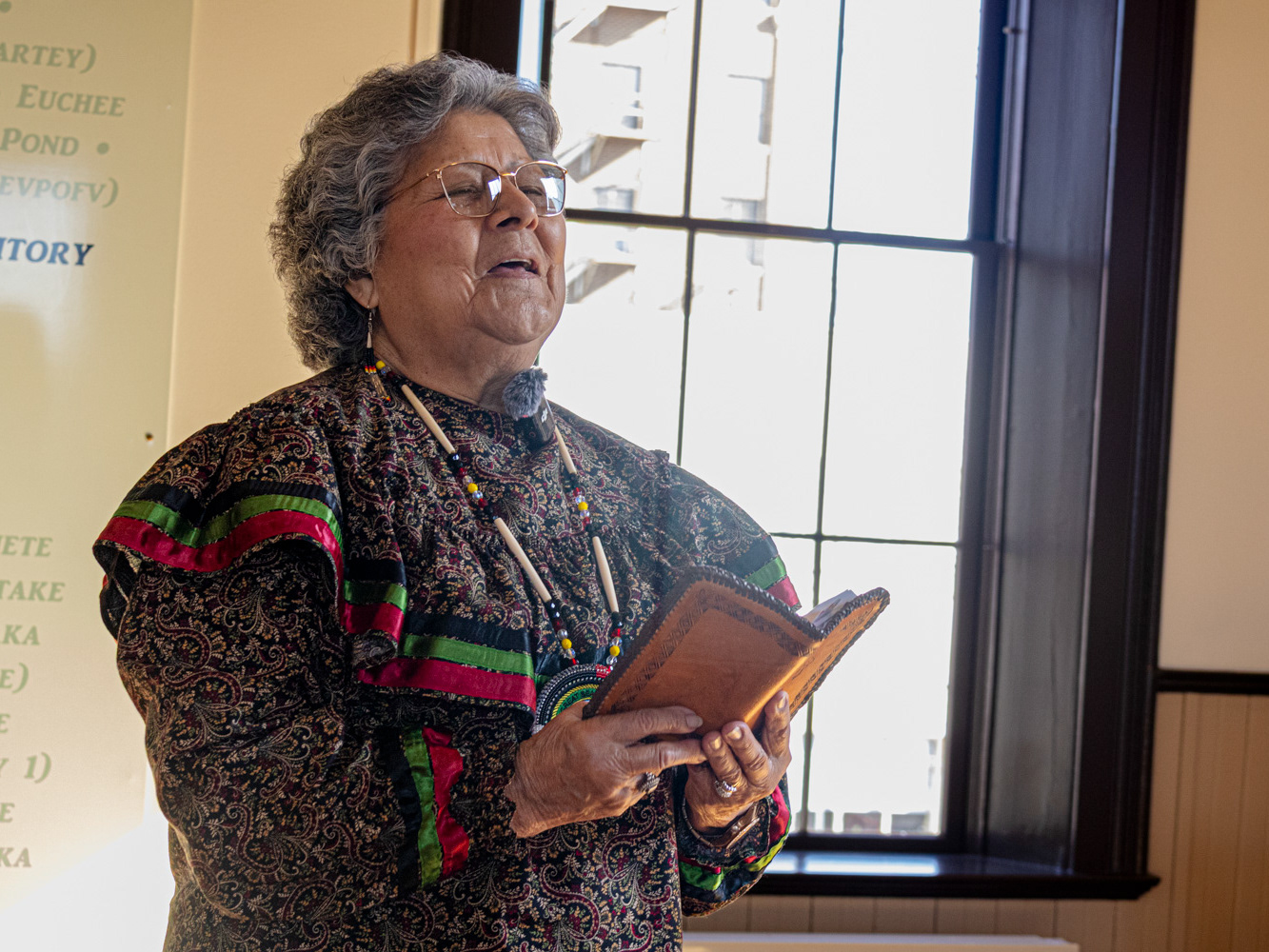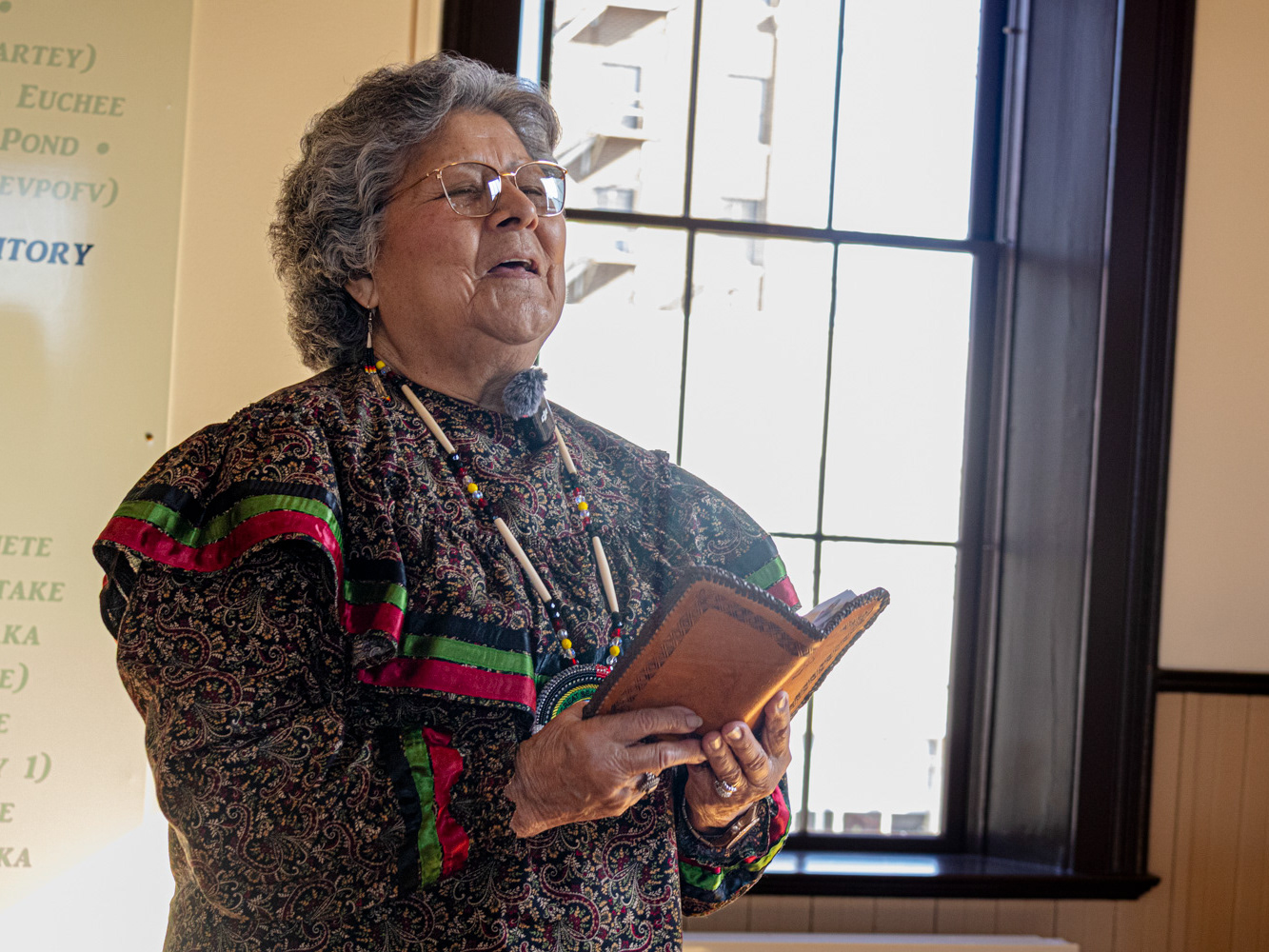“The language is everything” – Mvskoke Language Instructor Works to Preserve Endangered Language, One Student at a Time
By McKinnon Rice
OKMULGEE, OK — If you ask Mvskoke language instructor Carolyn McNac what her favorite word is in the Mvskoke language, she could not tell you for sure, but she says the word “vnokeckv” (anokíc-ka), or “love,” surfaces, as it reminds her of her family.
McNac’s family taught her how to speak the language that constitutes a crucial part of her identity and allows her to have a career as a teacher, or mvhayv (’mahá:y-a), through the Mvskoke Language Program.
The Language Program seeks to preserve the language through resources and classes. Its motto is “Learn it or Lose it,” and it is through the effort of teachers like McNac that the language is continuing. Preserving it is crucial, the tribe says.
“Our languages hold deep spiritual and cultural significance, carrying knowledge, stories, and traditions central to our identity,” said RaeLynn Butler, secretary of culture and humanities for the Muscogee Nation. “Without our language, our traditional practices, and spiritual teachings that are thousands of years old could be forgotten and the original expression and communication of our people lost.”
There are around 300 people “who have had significant exposure to Mvskoke Language throughout their lives and still utilize the Mvskoke Language to communicate with the broader community,” said Jay Fife, director of the Mvskoke Language Liaison Program, which serves to advocate for and empower language speakers.
McNac, who has been working for the Language Program for almost three years, learned the Mvskoke language before any other. As a child, she spoke English at school, but she, her two brothers and her sister spent much of her time at home with their grandparents, speaking Mvskoke.
“My grandpa knew a little bit, but not as much English, but my grandma, she didn't know no English at all,” McNac said. “We were raised just hearing that language, and I guess you can say ever since I was small, I've been speaking it since.”
Language instructor Carolyn McNac teaches the Mvskoke language to a class of adults and youths at the Koweta Indian Community Center in Coweta, Oklahoma, on March 12, 2025. McKinnon Rice
Instructors from the Language Program teach classes at nearby schools and Head Start programs. One such school is Wilson Public Schools, a Title 1 school with 241 students grades prekindergarten through 12. Title 1 is a designation given by the federal government to schools that grants them extra funding to assist low-income students.
On Tuesdays, McNac travels 25 to 30 minutes from the Language Program’s office in Okmulgee to the school to teach a single student, a 15-year-old boy named Izzayah Bear.
There were previously more school-age students in the class, McNac said, but they decided to stop. Bear said he is taking the class because he wanted to relearn the language after forgetting it from earlier in his childhood.
“I was around it when I was, like, 5 or 6,” Bear said. “I used to speak it a lot, and by the time people stopped speaking, that's when I started to lose the ability to speak it, because no one was speaking it to me.”
Izzayah Bear, 15, listens to language instructor Carolyn McNac as she teaches him the Mvskoke language at Wilson Public Schools in Mvskoke Nation, Oklahoma on March 11, 2025. McKinnon Rice
On a sunny afternoon in March, McNac teaches Bear how to say numbers, colors and animals: catē for red, cesse for mouse.
Bear’s parents speak the language, but not all adults in the Mvskoke Nation do. The following evening, McNac teaches similar basics to adults and youths at a class at the Koweta Indian Community Center, just under an hour’s drive from the office in Okmulgee.
Participants, many of them families, enjoy a dinner of fried chicken, potatoes and pudding before diving into Mvskoke phrases like “my name is Jane” and “I live in Tulsa.”
The adults are more tuned in than their children, whom they nudge to pay attention. Participants read from packets, following along with the lesson.
McNac said she feels fortunate to have learned the language by immersion.
"I see people having trouble,” McNac said. “Some people will say ‘it's hard to learn,’ or they have trouble with it, and sometimes I always think, I was blessed to have [my grandparents] there with me 24/7 to pick up that language, because if they didn't, I'd probably be out there trying to learn it myself.”
McNac said her son and two daughters were not able to get the same childhood language immersion that she did. Their grandparents died when they were young, and McNac’s husband did not speak Mvskoke, so she did not speak it in their home. But McNac now speaks to her grown children in the language, and she said although they cannot respond to her in Mvskoke, they do sometimes understand.
“The language is very important to me, because it's been there in my whole family,” McNac said. “I have very few family members still there that speaks it. And like I said, to me it's like, one of these days when we're gone, it's like – this won't go with us. And that's why you try to leave something for somebody, and you wish that, I wish somebody would hold on to that.”
For McNac, her identity as a Mvskoke person is not defined by a tribal citizenship card, but by the language she speaks.
“To me, I think the language is everything,” McNac said. “They can just take that card from you and just tear it up and they say, that was you. And to me, I'll be thinking, no, it wasn't. The language is me, and that's something you can't take away from me.”
